|
1 Comment
Coal is the energy source of the past, so what is it doing in plans for our future? It’s a question that was asked by labor, environmental and community activists as they learned about plans for a new bulk commodities terminal proposed for Oakland’s former army base by developer Terminal Logistics Solutions. The company is backed heavily by major coal producers in Utah looking for a way to get their product to U.S. ports for shipment, and while they thought they could sneak it by quietly, the ever-vigilant community in the Bay Area found out anyway, and the result was explosive. Opposition to the terminal is coming from a variety of angles, but one is particularly important: the labor community.
Oakland’s workers, especially its dockworkers, have always been highly active in their community. Many live and work in and around West Oakland, near the city’s port, and they have a vested interest in community health and welfare in addition to safe working conditions. They live in the awareness that the region has extremely high rates of respiratory disease and other pollution-related illnesses, something coal shipping would only exacerbate, and that working on a daily basis with the dusty and dangerous commodity would put their health at risk as well. So they had a personal interest in keeping coal out of Oakland, but it went deeper than that. In a statement issued September 18—immediately before a city council meeting scheduled for the 21st—the Alameda Labor Council put forward a firm case against coal. “The Alameda Labor Council [expresses] opposition to the export of coal through Oakland and specifically the Oakland Global Trade and Logistics Center at the former Oakland Army Base,” they explained, citing environmental and human health risks associated with coal exports. They also noted that the coal industry is notoriously anti-union, and that it doesn’t offer as many jobs as work in other commodity industries. Moreover, union advocates argued, they welcomed development of other commodities shipping at the Port of Oakland, as long as it involved less toxic and environmentally harmful products. “We acknowledge and commend the ongoing and growing commitment of labor to environmental justice issues that affect workers, communities, and future generations, including and not limited to the collaboration of labor with community groups to secure stricter environmental standards on projects and worksites that not only protect workers but diminish environmental hazards and pollution impacting public health and climate,” the statement said, reflecting the fact that unions across the United States are becoming more heavily engaged in environmental and social activism. Earlier this year, workers in Oakland’s ports shut down all activity on May Day in a solidarity protest with the Black Lives Matter movement, stressing commitment to racial and social justice in a heavily Black community—and in an industry where many workers are minorities as well. Oakland’s city council is in a difficult position, as it approved construction of the terminal before it passed a resolution barring the transport of coal and petcoke through its port. The city is required to demonstrate that the shipment of such products would be harmful before it could successfully block the proposal, and many community groups—like the Sierra Club along with union members and Positive Communication Practices, which serves at-risk youth--say there’s enough evidence to do just that. Many city council members have joined in public opposition to the plan, and the statement from Alameda County unions will only add weight to their position. Oakland’s port is a huge source of revenue for the community, and longshoremen and other dock workers are famous for having extremely robust and active unions. Without their support, it will be difficult to force the project through, and their insistence on defending not just their own health but that of the community is a sign of a notable trend in labor organizing. Read more: http://www.care2.com/causes/east-bay-unions-dont-want-your-coal.html#ixzz3n6TitKEI Brittany Patterson, E&E reporter
ClimateWire: Tuesday, September 22, 2015 OAKLAND, Calif. -- A contentious battle over the shipping of coal by rail through this city came to a head last night as hundreds of people lined up to share their opinions on its effects on health and safety. More than 500 people submitted requests to speak at the special public meeting, which ran more than six hours. The meeting was convened after it was revealed earlier this spring that four counties in Utah had tentatively pledged a $53 million loan to a multi-commodity bulk terminal currently under the first phase of construction. When completed, the terminal will be capable of receiving an estimated 9 million tons of coal per year. When originally proposed, developer Phil Tagami, an Oakland native, assured the City Council and the public that coal was not a commodity on the shortlist to come through Oakland. "This has never been about whether we're going to do the bulk import station or not; it is about what was promised to the community," said former Oakland Mayor Jean Quan, speaking at the hearing. Quan was in office when the deal was approved. "And quite frankly, the approval process would have been quite different if Phil Tagami had said, 'We're going to do coal.'" The shipping center is being built on the decommissioned site of the old Oakland Army Base. Proposed is a 360-acre facility called the Oakland Global Trade and Logistics Center. Part of that would be a commodity export terminal known as Oakland Bulk and Oversized Terminal (OBOT). In 2012, the city, which owns the land, awarded California Capital & Investment Group (CCIG), a commercial real estate group headed by developer Tagami, the right to develop the Oakland Army Base. CCIG awarded a 66-year lease for building and operating OBOT to an Oakland-based company called Terminal Logistics Solutions (TLS), headed up by Jerry Bridges, former executive director of the Port of Oakland. Speaking at the meeting, Bridges said TLS is currently reviewing all of its options to ship commodities including coal, but a final decision has not been made. He added that the company is "doing our best to raise the bar" to show the world that coal can be shipped safely. Environmental and local health groups say the dust from the coal as it both travels through the city and when it's offloaded at the terminal poses a health risk to air quality in a community that already suffers disproportionately from health problems. According to a University of California, Berkeley, study, in 2009, residents in West Oakland had a higher rate of asthma hospitalization than any other San Francisco Bay Area community, with 45 asthma hospitalizations per 1,000. Concerns over the health and safety of West Oakland residents was voiced by more than health advocates. Derrick Muhammad, business agent for International Longshore and Warehouse Union Local 10, a union that represents waterfront workers in multiple Bay Area ports, told the council his union wanted no part of coal at the terminal. "We welcome the terminal. We oppose the coal," he said. "This black neighborhood already suffers from the highest levels of asthma in Northern California. I think they've had enough. So no to coal." Many critics of the proposal cited climate change as a reason to say no to coal. Laura Wisland, a senior energy analyst with the Union of Concerned Scientists, testified that if Oakland were to allow coal to be shipped from its terminal, it would contradict where California is heading on climate policy as well as goals the city has set for itself. Last June, the Oakland City Council passed a resolution banning coal shipments from going through the facility. "Oakland must consider the impacts of burning coal on global climate change and how it impacts its residents," she said. "Those most susceptible to the risks related to climate change such as extreme heat are those who are already ill, the elderly and the poor." Deal takes mayor by surpriseWhen it was first proposed, coal was not on the menu. In a December 2013 newsletter, Tagami said coal was not in the plans. "It has come to my attention that there are community concerns about a purported plan to develop a coal plant or coal distribution facility as part of the Oakland Global project," Tagami was quoted as saying. "This is simply untrue. The individuals spreading this notion are misinformed. CCIG is publicly on record as having no interest or involvement in the pursuit of coal-related operations at the former Oakland Army Base." A little more than two years later, things had changed drastically. On April 2, members of Utah's Permanent Community Impact Fund Board were presented with a funding request from four coal-rich counties: Carbon, Sevier, Emery and Sanpete. A program of the state, the 11-member Community Impact Board operates a program that provides loans or grants to state agencies and subdivisions of the state that are socially or economically affected by mineral resource development on federal lands. The money they provide is collected from mineral lease royalties returned to the state by the federal government. The request was for a 30-year, $53 million loan with 2 percent interest for "an infrastructure project for the purpose of through-put capacity in Oakland, California consisting of the construction of a 330 acre multi-commodity deep draft marine terminal for the export of Utah goods to the Pacific Rim economies." The board questioned the legality of the project and voiced concerns over its size but ultimately voted to approve the loan, contingent on legal authorization, according to atranscript of the meeting. Mark McClure, a principal partner at CCIG, told the board after the vote that the group had been working on the project for about eight years, collecting public and private partners as well as the necessary permits. The shipping center comes with a $500 million price tag and has multiple public and private funders. He said the Union Pacific and Burlington Northern railroads both had routes that could carry coal to Oakland and had room for more train traffic. After news broke about the Utah deal, the controversy grew. A public records request by the Sierra Club unearthed a heated email exchange between current Oakland Mayor Libby Schaaf and Tagami. On May 11, Schaaf attended a breakfast where Bridges, CEO of TLS, mentioned coal coming to the terminal. "Stop it immediately," Schaaf wrote to Tagami after the breakfast. "You have been awarded the privilege and opportunity of a lifetime to develop this unique piece of land. You must respect the owner and public's decree that we will not have coal shipped through our city. I cannot believe this restriction will ruin the viability of your project. Please declare definitively that you will respect the policy of the City of Oakland and you will not allow coal to come through Oakland." Two days later, in a letter, Tagami told Schaaf that the city could not restrict what commodities travel through the bulk terminal. He said that because his company now contracts with Terminal Logistics Solutions, he and the city had agreed to "a complete transfer of our rights and obligations with respect to the terminal operations under the ground lease." Tagami added that in order to ensure the terminal's legal and financial stability, it was essential that it have "the ability to accommodate the full universe of bulk goods." Environmental groups rally; EPA raises questions"There's almost unanimous opposition to coal in the city of Oakland," said Brian Beveridge, co-director of the West Oakland Environmental Indicators Project, a community-based environmental justice organization. "Really, you have the master developer Phil Tagami and his subtenant, Terminal Logistics Solutions, standing alone in defiance of everybody else." The city might still have the ability to halt the shipment of coal under the army base contract's "Regulation for Health and Safety" clause. The city has the power to apply regulations to a project for health-related reasons, Beveridge said in an interview. Richard Grow, a project officer for U.S. EPA's Region 9, told the City Council that both the 2002 and 2012 California Environmental Quality Act assessments did not take into consideration the transportation or storage of coal. Under CEQA, state and local agencies must evaluate the significant environmental impacts of proposed projects and adopt all feasible mitigation measures to reduce or eliminate those impacts. Speaking in an official capacity during the hearing, Grow questioned the rights of the port's developers and the city to permit coal transportation. "The kinds of environmental issues you're hearing about haven't been subject to any federal environmental review since 2001," he said. "In our view, the kinds of impacts associated with coal haven't been subject to state or federal environmental review." Beveridge said that in his opinion, the city dropped the ball on a variety of oversight measures that could have been taken earlier. "Phil Tagami was very vocal and very upfront in saying, 'I won't take this project on and make you money as your tenant unless I have unilateral control,'" Beveridge cited as an example. "The council was handed a 3,000-page lease document, and everyone was in a hurry because state money was on the line." He said the West Oakland Environmental Indicators Project recently met with representatives from the California attorney general's office to discuss if a CEQA challenge could be filed. A spokeswoman with the attorney general said she could not comment on potential legal action. TLS has proposed covering the rail cars or spray wetting agents on the coal to mitigate dust; however, multiple speakers said there was no good scientific evidence to show that wetting agents mitigate dust. Debbie Niemeier, a professor in the department of civil and environmental engineering at the University of California, Davis, who was asked to review public plans for the project, said she was unable to find any railway that uses covers on rail cars, nor any company that manufactures them. Questions were raised as to whether, even if the terminal were to engage in "voluntary mitigation," the city would have any ability to hold it to a commitment under federal law. Kathryn Floyd, a lawyer hired by CCIG, argued that federal laws pertaining to railroads pre-empt local laws and that any moratorium passed by the City Council could interfere with the federal government's power to regulate interstate commerce. Twitter: @amusedbrit Email: [email protected] http://www.eenews.net/stories/1060025067 By Mike Blasky The Contra Costa Times First Published Sep 22 2015 12:21PM Controversy » At a special City Council hearing, the heated debate boils down to jobs vs. health. Oakland, Calif. • Kwame Nitoto doesn't want to hear about "safer" coal or the economic benefits of shipping fossil fuels from Utah through Oakland. There will always be new commodities to ship, more jobs to create. But coal isn't the future, and Oakland's residents can't afford to live in the past, he said — not when their health is at stake. "Let's stop pretending this is coal versus jobs. It's not about that," said Nitoto, program director for Positive Communication Practices, a Bay Area agency that works with at-risk youths. "If we're going to say health and safety is a priority, don't do it. Just don't do it." Nitoto was one of the hundreds of speakers who drew applause or jeers at a crowded, passionate special council meeting Monday to discuss a developer's contentious plan to ship millions of tons of Utah coal through the city's $250 million bulk shipping and logistics terminal development at the former Army Base, a cornerstone project for the city. Utah's Community Impact Board, which oversees federal mining royalties given to the state to help mitigate impacts on local communities, has committed $53 million to the project. It is a controversial shift from the board's traditional focus on such things as local government buildings, water projects and roads. But supporters defend the low-interest loan as an investment in reviving the struggling economies of the four rural Utah counties that propose to take an ownership interest in the port project. The hearing Monday was a first step for city officials, many of whom have already publicly slammed the plan, to gather testimony about the health and environmental impacts of shipping coal and other fossil fuels through West Oakland before taking steps to formally reject it. That wasn't an option for the council on Monday, as the hearing was only a fact-finding mission. Most of the speakers focused on the health and environment concerns. Dr. Muntu Davis, Alameda County's public health director, said children and seniors are particularly vulnerable to coal dust from rail transport, especially those in the city's poor neighborhoods. Children in West Oakland are already twice as likely to suffer from asthma and respiratory disease, he said. "Coal dust always comes out, and that dust will sit there. It's not like it will just blow away," he said. "And if it does get washed away, it will wash into the bay." The coal proposal by developer Phil Tagami, who is also the city-designated agent for the project, has drawn the ire of many elected officials since it was uncovered this year by the Richfield Reaper reporting on the state's interest in shipping coal at the new bulk terminal adjacent to the Port of Oakland. Terminal Logistics Solutions, or TLS, will start building the Bulk and Oversized Terminal at the Oakland Global Trade & Logistics Center later this year and hopes to finish the 35-acre project in 2017. Tagami didn't attend the hearing, but many of his supporters did. A lawyer working for Tagami's company told the council the city might not have jurisdiction to ban coal from the terminal because the project was already approved and the federal government has jurisdiction of rail transport. Jerry Bridges, president of TLS and a former executive director of the Port Authority, told the council that his company is reviewing the viability of all commodities, including coal. But if the terminal chooses to export coal, Oakland has an opportunity to show the world it's possible to transport it safely. "Our commitment to the safety and health of our workers is a top priority, and we will operate in a manner that meets and exceeds all industry standards," Bridges said. The council chambers were filled to capacity as soon as doors opened Monday, sending extra speakers to the city's overflow meeting rooms downstairs. Dozens of residents wore red "Beyond coal exports" shirts and carried "no coal" exports sign. Others came to the meeting concerned about the prospect of losing jobs if the city passes on coal, a lucrative but increasingly scarce resource as more people stop using fossil fuels for energy. Several dozen construction workers wearing yellow "I Support Oakland Jobs" T-shirts packed City Hall a few hours before the hearing to support the coal plan, although not every worker seemed interested in the night's content. Many of the workers said they weren't sure which side of the argument they were on, and most only ceded their speaking time to pro-coal lawyers and executives without making a statement.
Debbie Niemeier, a civil and environmental engineering professor at UC Davis, and an expert in emissions, said 10.5 million tons of coal means 30 million tons of carbon dioxide in the atmosphere. And coal-burning in Asia impacts U.S. residents on the West Coast, she said, with greenhouse gases a real concern for the world. "Climate change is responsible for the sea level rise and exacerbating the California drought," Niemeier said. Others took a blunt view of the situation. Kevin Barnes, a pastor at Abyssinian Missionary Baptist Church, told the council that many of Oakland residents were poor and starving and need real jobs that pay living wages. There is a drug crisis impacting the city's youth, he said. "With all this cocaine in the streets," Barnes said, "you're worried about coal?" But others cautioned that the short-term economic benefits of coal aren't necessarily good for the long-term residents. Derrick Muhammad, a member of the International Longshore & Warehouse Union Local 10, which recently voted to oppose the handling of coal, said prostitution is a form of employment. But not all money is good money. Any benefit from coal, Muhammad said, "is far outweighed by its detriment." Mike Blasky covers Oakland City Hall. Contact him at 510-208-6429. Follow him at Twitter.com/blasky. — The Salt Lake Tribune contributed to this story. http://www.sltrib.com/home/2979432-155/oakland-city-council-packed-for-special OAKLAND -- Kwame Nitoto doesn't want to hear about "safer" coal or the economic benefits of shipping fossil fuels through Oakland. There will always be new commodities to ship, more jobs to create. But coal isn't the future, and Oakland's residents can't afford to live in the past, he said -- not when their health is at stake. "Let's stop pretending this is coal versus jobs. It's not about that," said Nitoto, program director for Positive Communication Practices, a Bay Area agency that works with at-risk youth. "If we're going to say health and safety is a priority, don't do it. Just don't do it." Chambers were completely filled at a special meeting of the Oakland City Council to discuss the status of a plan to ship coal through the Port of Oakland, Monday, Sept. 21, 2015, at City Hall in Oakland, Calif. Two other overflow chambers allowed hundreds more spectators to watch the proceedings. (D. Ross Cameron/Bay Area News Group) ( D. ROSS CAMERON ) Nitoto was one of the hundreds of speakers who drew applause or jeers at a crowded, passionate special council meeting Monday to discuss a developer's contentious plan to ship millions of tons of Utah coal through the city's $250 million bulk shipping and logistics terminal development at the former Army Base, a cornerstone project for the city. The hearing was a first step for city officials, many of whom have already publicly slammed the plan, to gather testimony about the health and environmental impacts of shipping coal and other fossil fuels through West Oakland before taking steps to formally reject it. That wasn't an option for the council on Monday, as the hearing was only a fact-finding mission. Most of the speakers focused on the health and environment concerns. Dr. Muntu Davis, Alameda County's public health director, said children and seniors are particularly vulnerable to coal dust from rail transport, especially those in the city's poor neighborhoods. Children in West Oakland are already twice as likely to suffer from asthma and respiratory disease, he said. "Coal dust always comes out, and that dust will sit there. It's not like it will just blow away," he said. "And if it does get washed away, it will wash into the bay." 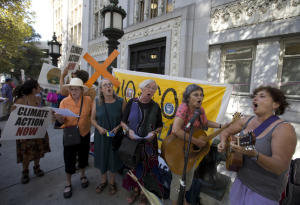 A group of women billing themselves as The Occupellas sing songs of protest and resistance outside a special meeting of the Oakland City Council where participants would discuss the status of a plan to ship coal through the Port of Oakland, Monday, Sept. 21, 2015, at City Hall in Oakland, Calif. (D. Ross Cameron/Bay Area News Group) ( D. ROSS CAMERON ) The coal proposal by developer Phil Tagami, who is also the city-designated agent for the project, has drawn the ire of many elected officials since it was uncovered this year by a Utah newspaper reporting on the state's interest in shipping coal at the new bulk terminal adjacent to the Port of Oakland. Terminal Logistics Solutions, or TLS, will start building the Bulk and Oversized Terminal at the Oakland Global Trade & Logistics Center later this year and hopes to finish the 35-acre project in 2017. Tagami didn't attend the hearing, but many of his supporters did. A lawyer working for Tagami's company told the council the city might not have jurisdiction to ban coal from the terminal because the project was already approved and the federal government has jurisdiction of rail transport. Jerry Bridges, president of TLS and a former executive director of the Port Authority, told the council that his company is reviewing the viability of all commodities, including coal. But if the terminal chooses to export coal, Oakland has an opportunity to show the world it's possible to safely transport it. "Our commitment to the safety and health of our workers is a top priority, and we will operate in a manner that meets and exceeds all industry standards," Bridges said. The council chambers were filled to capacity as soon as doors opened Monday, sending extra speakers to the city's overflow meeting rooms downstairs. Dozens of residents wore red "Beyond coal exports" shirts and carried "no coal" exports sign. Others came to the meeting concerned about the prospect of losing jobs if the city passes on coal, a lucrative but increasingly scarce resource as more people stop using fossil fuels for energy. Several dozen construction workers wearing yellow "I Support Oakland Jobs" T-shirts packed City Hall a few hours before the hearing to support the coal plan, although not every worker seemed interested in the night's content. Many of the workers said they weren't sure which side of the argument they were on, and most only ceded their speaking time to pro-coal lawyers and executives without making a statement. Debbie Niemeier, a civil and environmental engineering professor at the UC Davis, and an expert in emissions, said 10.5 million tons of coal means 30 million tons of carbon dioxide in the atmosphere. And coal-burning in Asia impacts U.S. residents on the West Coast, she said, with greenhouse gases a real concern for the world. "Climate change is responsible for the sea level rise, and exacerbating the California drought," Niemeier said. Others took a blunt view of the situation. Kevin Barnes, a pastor at Abyssinian Missionary Baptist Church, told the council that many of Oakland residents were poor and starving and need real jobs that pay living wages. There is a drug crisis impacting the city's youth, he said. "With all this cocaine in the streets," Barnes said, "you're worried about coal?" But others cautioned that the short-term economic benefits of coal aren't necessarily good for the long-term residents. Derrick Muhammad, a member of the International Longshore & Warehouse Union Local 10, which recently voted to oppose the handling of coal, said prostitution is a form of employment. But not all money is good money. Any benefit from coal, Muhammad said, "is far outweighed by its detriment." Mike Blasky covers Oakland City Hall. Contact him at 510-208-6429. Follow him at Twitter.com/blasky. http://www.contracostatimes.com/breaking-news/ci_28855002/oakland-city-council-packed-special-hearing-controversial-coal 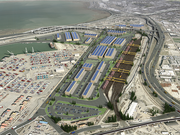 Over three hundred Oakland residents have signed up to testify at a City Council hearing today on potential coal shipments through a new logistics facility at the former Oakland Army Base, pitting environmentalists and activists against one of the city's most prominent developers. The hearing focuses on a $1.2 billion shipping center in West Oakland set to create 2,400 jobs. Four Utah counties have approved a $53 million investment that would ship coal and other products through the facility, which would then be loaded on to ships to Asia. Environmentalists including the Sierra Club have criticized the plan as environmentally destructive and a public health hazard. Phil Tagami's California Capital & Investment Group is developing the project. Tagami has been one of the most influential developers in Oakland for over a decade and also redeveloped the historic Fox Theater and Rotunda Building. “Everything we are doing is improving Oakland, including its air quality. The project is a prime example of best practices of a community benefits agreement negotiated over three years ago. The package we agreed to with community stakeholders is unprecedented, all of which is framed by thousands of good paying, union jobs,” Tagami said in a statement. The tenant of the facility's first phase, Terminal Logistic Solutions, has led the coal negotiations. "To be economically viable, we must be able to transload raw materials such as corn, soy beans, borax, iron ore, pot ash, soda ash, and yes, coal," Jerry Bridges, head of Terminal Logistic Solutions, and a former Port of Oakland executive director, wrote in a July letter to Oakland mayor Libby Schaaf. He noted that coal would be transported by covered railcars that would prevent coal dust from leaking and comply with state air quality regulations. The agreement with the Utah counties hasn't been finalized and could still change. The opposition has been joined by union groups including the Alameda Labor Council's executive committee, which voted to oppose coal shipments earlier this month, as well as the International Longshore and Warehouse Union Local 10 and Local 34, who work at the nearby Port of Oakland. Former Oakland Mayor Jean Quan also stated her opposition to coal shipments on Sunday. Some business and labor groups have come out in support of the project, touting its economic benefits and criticizing "fearmongering." The Building and Construction Trades Council of Alameda County, AFL-CIO and Teamsters Joint Council No. 7 sent letters last month to city officials. “We think the issue deserves a thoughtful approach free of rhetoric, politics and personality attacks. And we call on you as Oakland’s elected leaders to lead with principle,” the Teamsters stated in its August 5 letter. The project was entitled in 2013, and the development agreement states that the city has a right to regulate the project based on public health and safety. In 2014, the City Council voted to oppose the transport of hazardous fossil fuels including coal through Oakland. But city may be limited in its authority to regulate interstate commerce, the domain of the federal government, a land use attorneytold the Business Times in July. The hearing will begin at 4 p.m. at Oakland City Hall at 1 Frank H. Ogawa Plaza. Roland Li covers real estate and economic development http://www.bizjournals.com/sanfrancisco/blog/real-estate/2015/09/oakland-coal-army-base-phil-tagami-sierra-club.html Businessmen who want to export coal from Oakland promised to pay money to environmental groups and churches in exchange for their support. By Darwin BondGraham n a series of quiet meetings, the businessmen behind a plan to export millions of tons of coal from the Oakland waterfront have offered local churches and environmental organizations money in exchange for their support, the Express has learned. According to several sources with firsthand knowledge of the meetings, Jerry Bridges and Omar Benjamin, both former Port of Oakland executive directors who now lead Terminal Logistics Solutions (TLS), the private company that wants to export the coal from the redeveloped old Oakland Army Base, met with leaders of West Oakland environmental organizations and several churches to offer them potentially millions of dollars if they would agree to back their plan. Bridges and a paid lobbyist have also been speaking at influential Oakland churches to rally support for coal.
According to Brian Beveridge of the West Oakland Environmental Indicators Project, Bridges, who is the president and CEO of TLS, and his business partner Omar Benjamin, who is senior vice president of the company, contacted the environmental group about two months ago and asked for a meeting. Beveridge and Margaret Gordon, also of the environmental group, met with Bridges and Benjamin for lunch at Nellie’s Soulfood Restaurant and Bar near the Port of Oakland. “They said they’d be willing to offer us twelve cents a ton of coal [shipped through Oakland], placed into some kind of community fund that the community could do with as they please,” Beveridge said. “They suggested, ironically, it could support a health clinic, but I think the irony was lost on them. They said they’d be happy if we managed that fund, and they’d give our organization this money to do that.” In July, Bridges told KQED that he hopes to ship approximately 4.2 million tons of coal a year from Utah through the bulk commodity terminal planned for construction at the Oakland Global site. According to the US Energy Administration, Utah coal currently sells for about $39.75 per ton. Therefore, at current prices, the value of the coal TLS wants to export from Oakland would equal about $166 million a year in value. Twelve cents on every ton, if it were used to pay off environmental groups, would generate roughly $500,000 a year. Bridges and Benjamin of TLS did not respond to multiple phone calls and emails seeking comment for this report. Beveridge said that he and Gordon turned down the offer. “Others have used the ‘bribe’ word, but I wouldn’t say it was that,” said Beveridge. “They were saying, in their context, they want to give the community some kind of benefit, and I understand they’re now offering that to other organizations in the community. “As much as money is important,” Beveridge continued, “we weren’t going to sell our voice for something we knew up front wasn’t good for us.” According to Oakland City Council President Lynette Gibson McElhaney, who represents West Oakland, where the coal export terminal would operate, Bridges also recently met with the pastors of several churches in an effort to gain their support for coal exports, again with the offer of money tied to each ton of coal shipped through the Oakland Global bulk terminal. “Churches have said to me that he was creating a community fund that they could tap into,” said Gibson McElhaney in an interview. “Seven cents a ton — that’s what ministers reported to me.” Gibson McElhaney said last week that she has tried to avoid discussing the coal issue with lobbyists from all sides before Monday night’s public hearing on the subject, but the controversial issue keeps popping up. “Everybody wants to see the Army Base producing jobs, and that’s the spirit we’re moving forward in, but we have an obligation to consider public health and safety, and to regulate any risk to public health and safety,” she said. Supporters of the coal export plan tout the jobs that would be created from building the terminal and shipping millions of tons of fossil fuel to overseas markets. TLS also claims that it will build a state-of-the-art enclosed coal warehouse with covered conveyor belts, all fed by enclosed rail cars, to minimize fugitive coal dust that might be blown into the surrounding community, or which would expose workers to toxic materials. In a July 15 letter to Oakland Mayor Libby Schaaf, Bridges called the type of coal his company wants to ship “low-sulfur,” and “among the cleanest burning coals in the world.” In advance of Monday night’s city council hearing, CCIG, the master developer of the Oakland Global Project, submitted a report prepared by HDR Engineering that claims that “the amounts of coal dust emissions to the City of Oakland resulting from transport of coal … and related terminal operations will be negligible, and that impacts from coal dust emissions and deposition will not harm health or the environment.” Opponents cite the environmental and health impacts of the coal industry, especially dust blown from trains and silos into surrounding communities. They have pointed out that there have never been health and safety studies of shipping coal in the types of train cars and terminal equipment that TLS has said it will use. Indeed, there are no covered rail cars used to transport coal anywhere in the United States today. Critics also say that enclosing coal in cars and silos could pose explosive fire hazards. Opponents also say the plan is economically risky because US and overseas markets for coal are shrinking as regulators here and abroad try to reduce carbon emissions. And then there’s the problem of greenhouse gas emissions. In a lettersubmitted to the Oakland City Council and the mayor on Monday morning, the No Coal in Oakland coalition of neighborhood and environmental groups wrote that the scale of fossil fuel exports from the project would be so big it would have measurable climate change effects on a global scale. According to the groups, if one assumes that TLS exports the maximum allowable coal from the terminal for the 66-year term of its lease, it would ship about 660 million tons of coal to overseas power plants. These coal-fired plants would burn it and then release as much as 1.5 billion tons of CO2 into the atmosphere. “The City Council is now considering the health and safety impacts of facilitating the release of over a billion tons of CO2 into the atmosphere,” stated the groups’ letter. “The incremental amounts of atmospheric carbon that will drive climate change are measured in billions of tons. A billion tons matters.” In his efforts to drum up support for coal exports, Bridges has avoided discussing the issue of climate change and stuck to the message of jobs. The promise of jobs, even dangerous ones associated with shipping coal, resonates with many in Oakland’s flatland communities. West Oakland’s unemployment rate is 16 percent for the total population and 29 percent for Black residents, according to the US Census. To deliver this message to churches and community groups, Bridges hired lobbyist Darrel Carey, according to several sources. Carey runs a group called the East Bay Small Business Council and is the cousin of Zachary Carey, the pastor of True Vine Ministries church in West Oakland. Darrel Carey has also written op-eds in the Oakland Post, a Black-owned newspaper, supporting the coal export plan, and attended multiple community meetings to speak in favor of coal and jobs. Carey also recently scheduled a “coal transport education” meeting at True Vine Ministries, but the meeting was cancelled, according to several people who planned to attend it. Bridges has also been speaking before church congregations about the positive economic impact that building and operating the terminal will have on West Oakland, according to church attendees. Oakland resident Dag Sibhat said he was at Acts Full Gospel Church several weeks ago when Bridges took the stage for several minutes to promote coal exports from Oakland. “The pastor said he wanted everyone to sign on and support him,” said Sibhat about the introduction given to Bridges. “They made him seem like he was an African-American businessman who was trying to succeed in the world, but they didn’t state it as, you know, ‘he’s a representative of the coal industry.’” According to Sibhat, Bridges described himself as a former senior executive of the Port of Oakland and said that coal exports from the new terminal would be environmentally safe because of new technologies and designs. He drove home the message that coal would provide jobs. “He didn’t say anything specific or detailed about the design, just that it was going to be ‘revolutionary,’” said Sibhat. “That’s why I was questioning his claims. I know the low-income areas would get jobs from this, but the whole safety and environmental thing is important, and a lot of people do take advantage of low-income communities.” Neither Darrel Carey nor representatives of Acts Full Gospel Church returned phone calls and emails seeking comment for this report. Late last week, the Alameda Labor Council, which represents unions throughout the county, announced its official opposition to coal exports through Oakland. The Alameda Labor Council pointed to health and environmental harms caused by coal and noted that “jobs involving coal are unhealthy and unsafe due to dust emissions,” and that “coal is increasingly an anti-union industry.” http://www.eastbayexpress.com/SevenDays/archives/2015/09/21/buying-support-for-coal 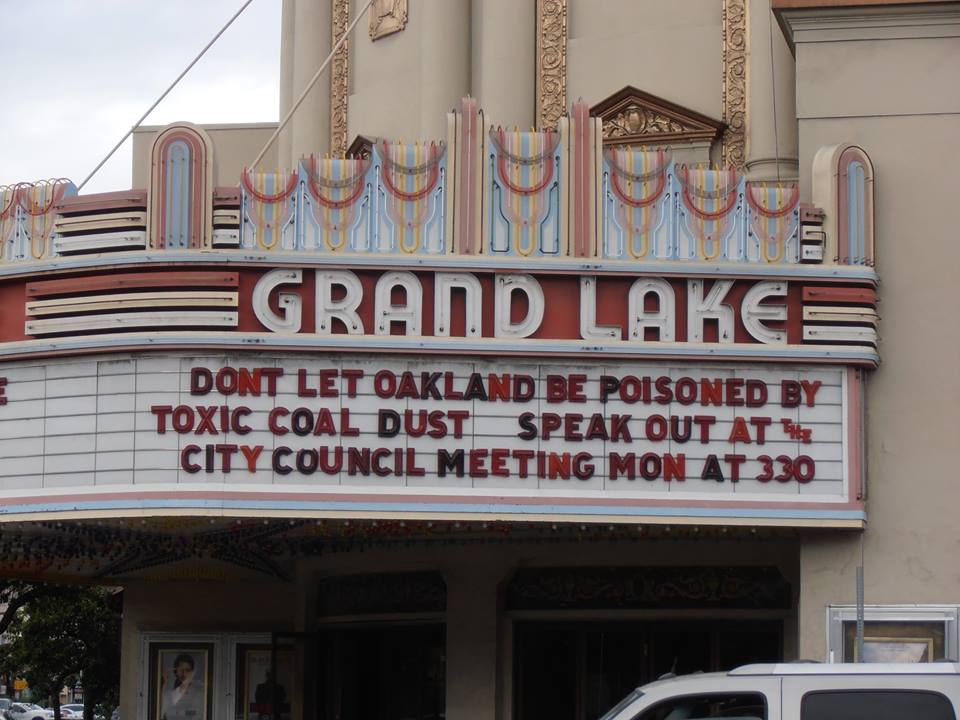 SAN FRANCISCO, CA – Longshore workers and marine clerks who have moved cargo at the Ports of Oakland and San Francisco since 1934 have rejected a developer’s plan to export coal through former Oakland Army Base. International Longshore and Warehouse Union elected officials say coal is an undesirable, low-value cargo and a broken promise on the part of the developer, and longshore workers are standing by community members who do not want the worry and risks of nine million tons of coal passing through their neighborhoods on trains each year. After much research and discussion, the rank and file members of ILWU Local 10 and ILWU Local 34 have voted to oppose the handling of coal at the site. “When the developers of the project were seeking tax money and public support to develop the Oakland Army Base, they talked about exporting cargoes like grain and potash,” said Sean Farley, President of ILWU Local 34. “They made a ‘no coal’ promise to workers, the community and elected officials, and they need to make good on that promise. Waterfront space is in short supply on the West Coast, and it would be a mistake to lock Oakland into a decades-long lease with a coal industry that many say is dying. Coal proposals have failed up and down the West Coast, and Oakland shouldn’t become the dumping ground for dirty, low value cargoes that no one else wants.” After the Oakland City Council granted the California Capital and Investment Group (CCIG) the right to develop the former army base adjacent to the Port of Oakland, CCIG planned to build the Oakland Bulk and Oversized Terminal (OBOT) on the site. CCIG has since turned its “no coal” promise into a “coal or nothing” threat, claiming no other cargo will pay the bills. Meanwhile, other West Coast ports are thriving while exporting products like grain, potash, soda ash, salt, and other commodities and bulk products. “Coal is not the right way to bring jobs to Oakland,” said ILWU Local 10 Business Agent Derrick Muhammad. “Oakland families are already worried about asthma and other sickness because of highways and port activities. It’s not right to ask them to take on the worry and risk of nine million tons of coal passing through their neighborhoods on trains each year. If the developers haven’t found a cleaner, safer product yet, they owe it to the City of Oakland to make good on their promise and keep looking. They’ll find better cargoes if they are truly committed to bringing good, safe jobs to our community.” The International Longshore and Warehouse Union’s Coast Longshore Division represents approximately 25,000 longshore men and women in 30 West Coast ports from San Diego, CA, to Bellingham, WA. http://ecology.iww.org/taxonomy/term/1170 Climate change: Oakland longshore workers oppose shipping coal at new terminalBy Mike Blasky [email protected] POSTED: 09/18/2015 04:01:14 PM PDT OAKLAND — Longshore workers at the Port of Oakland are opposing a developer's plan to ship coal to Asia through a new terminal at the old Army Base. Members of International Longshore and Warehouse Union Local 10 and Local 34 voted to oppose the handling of coal at a new bulk maritime terminal being built by developer Phil Tagami's company California Capital & Investment Group, union officials announced Friday. The unions join several elected officials, port commissioners, environmental groups and members of the community in objecting to the plan. "When the developers of the project were seeking tax money and public support to develop the Oakland Army Base, they talked about exporting cargoes like grain and potash," Sean Farley, president of Local 34 said in a statement. "They made a 'no coal' promise to workers, the community and elected officials, and they need to make good on that promise." The City Council on Monday will hold a public hearing to discuss Tagami's controversial plan, which was revealed when a Utah newspaper reported this spring that a state agency had approved a $53 million investment to ship coal through the new terminal. That contradicted Tagami's previous public statements that he wouldn't support exporting coal at the base and drew the ire of Mayor Libby Schaaf and several council members. "He said it to my face," Councilman Dan Kalb said. "He said, 'Dan, climate change is the premiere issue of the day. I care very much about my children and I would never let coal go through any of my property or terminal.' And he was very passionate about that."
Since it was discovered, residents have routinely filled City Hall to protest the coal transport plan. Councilman Larry Reid and Vice Mayor Rebecca Kaplan co-sponsored Kalb's hearing proposal. Monday's special hearing starts at 4 p.m. Mike Blasky covers Oakland City Hall. Contact him at 510-208-6429. Follow him atTwitter.com/blasky. Chinese filmmaker Zhao Liang said on Friday the Mongolian coal mine depicted in his documentary "Beixi Moshuo" (Behemoth) is a vision of hell out of Dante's "Divine Comedy", and hopes viewers everywhere will realize ravaging the environment must stop. The film, competing for the main prize at the Venice Film Festival, is an extraordinary look at what resembles a human anthill of ceaseless, manual work by miners at a sprawling complex in China's northern Inner Mongolia autonomous region. “My biggest hope is to convey the message that no matter where you are and what your living conditions are and where you actually live, people should be more aware of these issues and maybe lower their expectations and their desires towards life and not waste that many resources and supplies, to live more simply," Zhao told Reuters in an interview. "I hope people get to reflect about their lives and how our lifestyles affect everything around us, including the environment." Working around-the clock under floodlights, the mines and its workers have displaced the local herdsmen, whose grasslands have disappeared. The film shows miners staggering under their workload, and also glimpses of them in hospitals, being treated for black-lung disease brought on by breathing coal dust. Zhao, a veteran documentary maker whose films often look at dysfunctional aspects of Chinese society, said he hadn't needed the permission of the Chinese authorities to make the film, because it is an independent production with French support, but he would need permission to show it in China. At a press conference he noted only one Chinese journalist was present, reflecting what he said might possibly be official pressure on them not to attend. "But I think there must be some sort of misunderstanding anyway because nobody has ever seen this movie and so it's wrong for them to decide that it is not desirable for it to be screened. They should see it first, then decide it is not appropriate, if at all," Zhao, whose remarks were translated from Chinese into English by the festival, said. He said the notion that his images from the coal mine might be framed as a modern-day version of the 14th-century Florentine poet Dante Alighieri's descent into hell had been suggested to him by the film's French backers, the National Audiovisual Institute (INA) and ARTE France. "We had this connection with Dante's 'Divine Comedy' by pure chance because every time I visited the place, the location I got the idea of being down in hell and when I showed the footage to the producers they suggested I read it," Zhao said. He said that what Dante wrote in the early 14th century "corresponds to what we experience here in our days, and this was how this connection with the 'Divine Comedy' by Dante was developed and became part of my film". (Additional reporting by Hanna Rantala; Editing by Mark Heinrich) http://www.reuters.com/article/2015/09/12/us-filmfestival-venice-behemoth-idUSKCN0RB1NE20150912 'Behemoth' ('Beixi moshuo'): Venice Review |
Gene HazzardDon't Be Envious of Evil Men Archives
June 2024
Categories
All
|
- Home
- Sanjiv Handa
- Gene's Blog
- Rotunda RFP
- Gene Hazzard -Keeping eyes open
- Chronology of Tagami's scheme of Private-Public Partnership with City Projects
- Another Tagami scheme - Rotunda Building deal
- Oakland Army Base
- Billboards in Oakland
- Port of Oakland
- Oakland Raiders?
-
Who is running Oakland?
- Jerry Brown
- Don Perata
- Judge Robert B. Freedman
- Jacques Barzaghi
- Gawfco Enterprises
- Deception
- Doug Bloch
-
Phil Tagami
>
- SF Business Times November 20, 2005
- Rotunda wrestling
- A conversation with Oakland developer Phil Tagami
- Audit of $91 million Fox Theater project
- Tagami Conflict
- CCIG Response to Oakland Works
- Oakland developer Phil Tagami named to state medical board
- ‘Shotgun Phil’ hits another bullseye — with governor’s help
- CleanOakland Store
- CenterPoint Properties

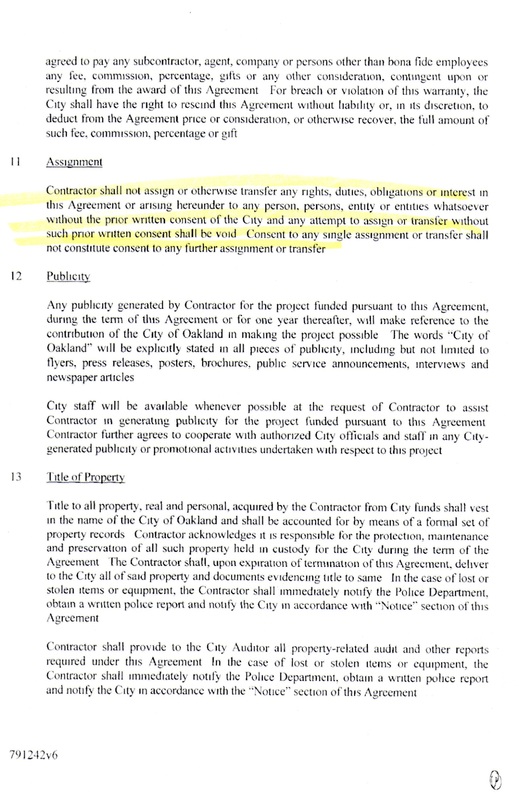
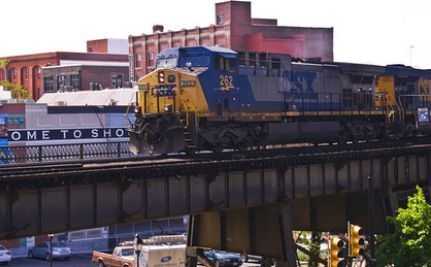
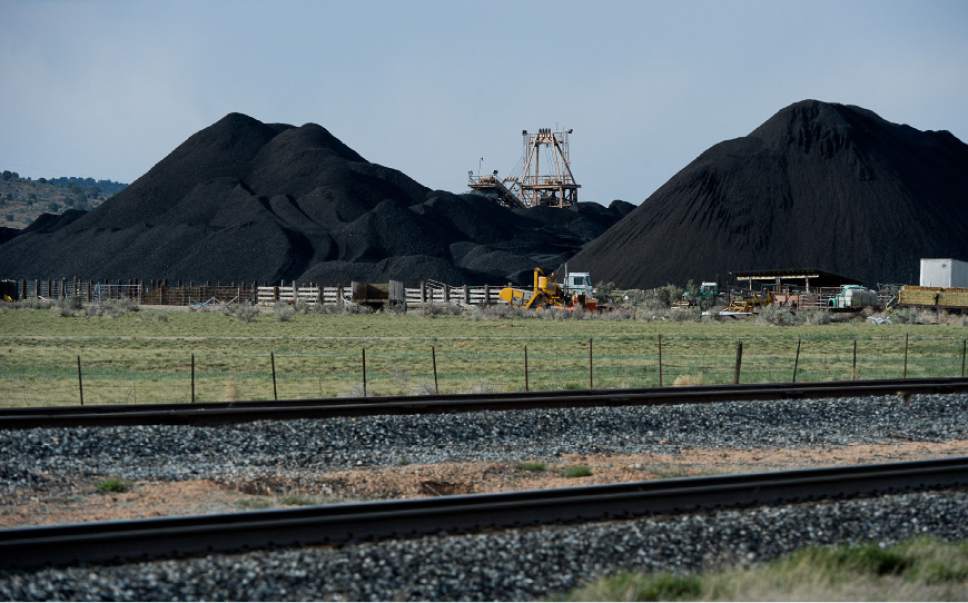
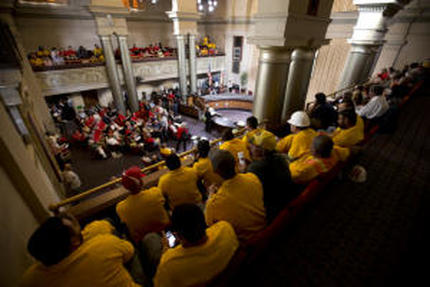
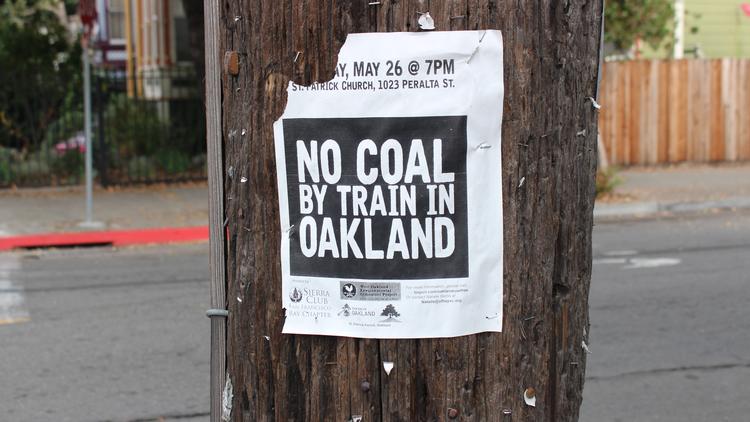
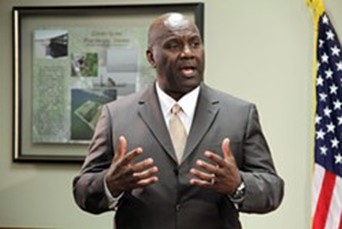
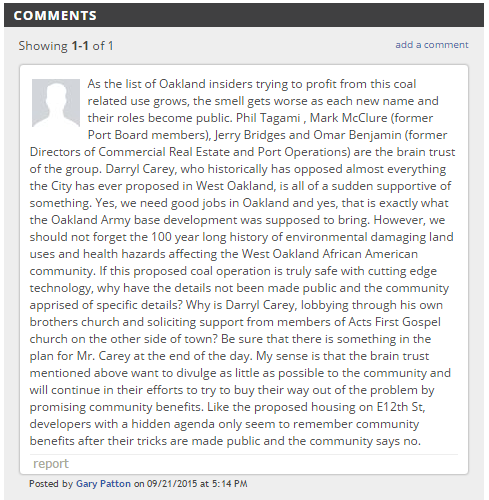

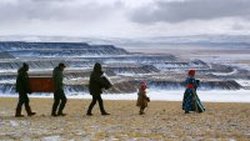
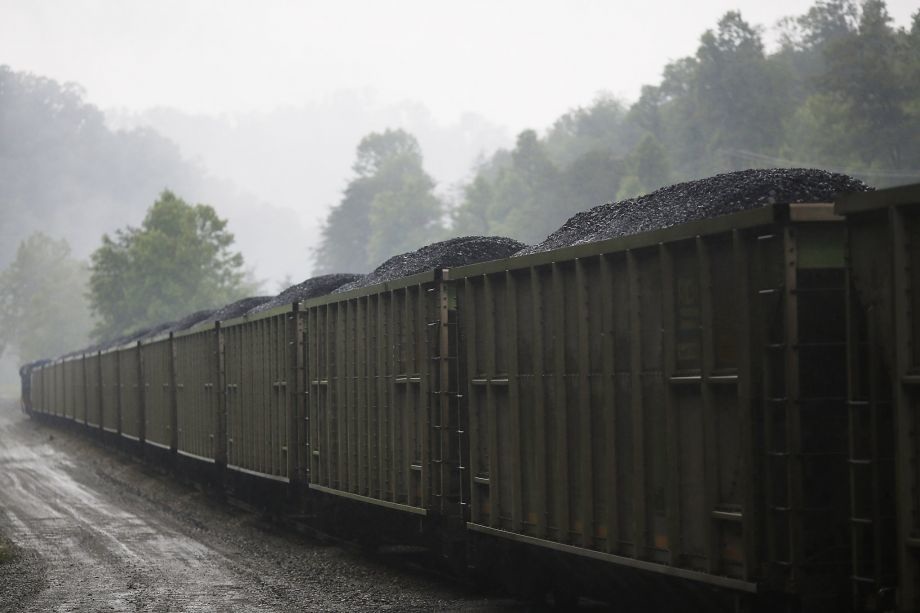
 RSS Feed
RSS Feed
